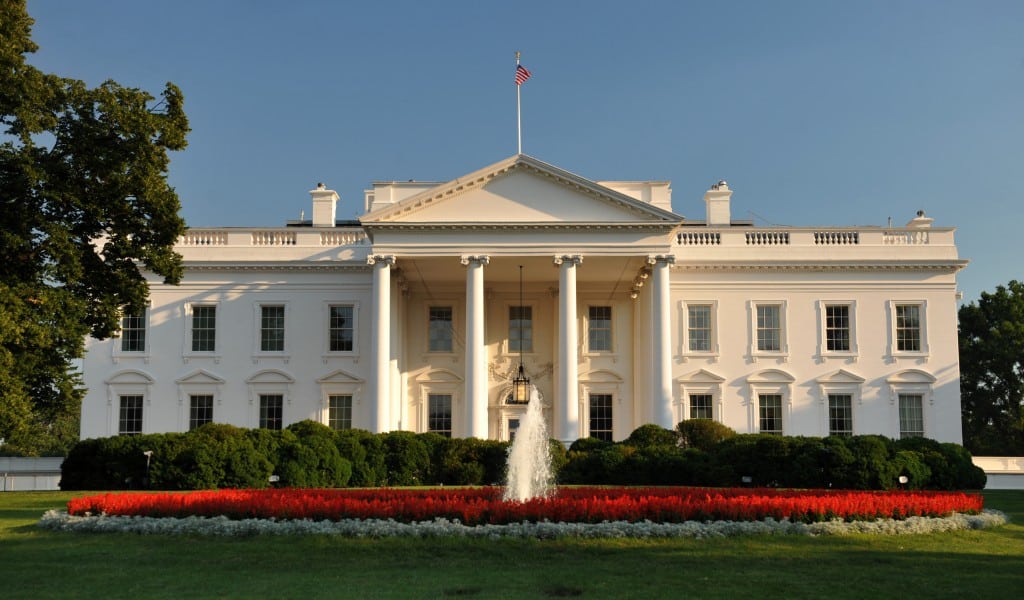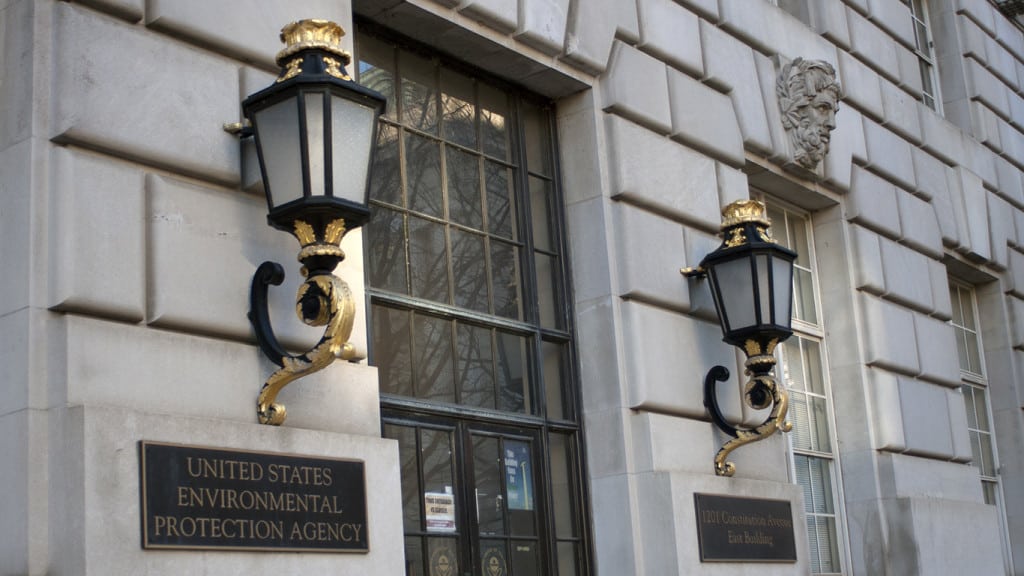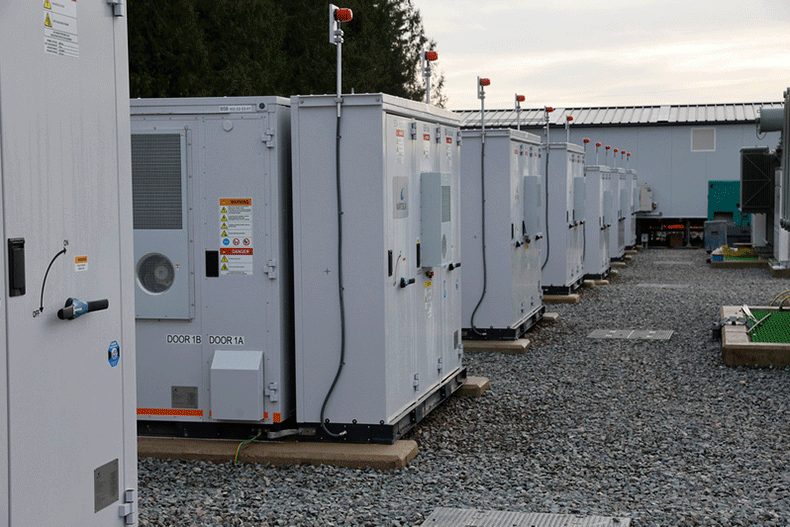Environmental Protection Agency (EPA) chief Scott Pruitt on October 9 said he will sign a proposed rule Tuesday to repeal the Clean Power Plan (CPP), a signature initiative of former President Barack Obama’s administration that mandated cuts in carbon dioxide (CO2) emissions from power plants.
Pruitt, speaking to a group of coal miners Monday at an event in Hazard, Kentucky, said “Tomorrow, in Washington, D.C., I’ll be signing a proposed rule to withdraw the so-called Clean Power Plan of the past administration and thus begin the effort to withdraw the rule.” Pruitt said the CPP “was really about picking winners and losers” in the market for power generation, and said the Obama administration “just simply made it up” when determining the regulations in the CPP.
Opponents of the CPP say it unfairly targets fossil fuel-powered plants, particularly coal plants, with its mandates on the reduction of carbon dioxide (CO2) emissions. Several states and other groups have challenged the plan in court; in August, the U.S. Court of Appeals for the District of Columbia gave the EPA another 60 days to review the plan as the court debates the legality of the rule. Supporters say the plan is important to reduce the country’s carbon footprint and combat climate change.
Massachusetts Attorney General Maura Healey, a Democrat, on Monday said she would sue the Trump administration over its move to repeal the CPP. Said Healey: “[It’s] essential that the EPA address our country’s largest source of carbon pollution, existing fossil fuel-burning power plants, to mitigate climate change.”
It was a 2007 Supreme Court decision in Massachusetts v. EPA in which the court ruled that greenhouse gases are pollutants under the Clean Air Act. On December 15, 2009, the EPA under President Obama said greenhouse gas emissions endanger the public health and welfare of current and future generations, a ruling that has been upheld by the D.C. Circuit Court in what has come to be known as the “endangerment finding.”
The CPP, which Obama instituted in 2015, called for reductions in CO2 by 32% below 2005 levels by 2030. The Supreme Court froze implementation of the plan in 2016. Pruitt, then Oklahoma’s attorney general before being tapped to lead the EPA by President Donald Trump, was among those state leaders who opposed the CPP.
The EPA’s 43-page proposed rule to repeal the plan, obtained last week by POWER and other media, says the agency under Obama overstepped its legal authority as it forced power plant operators to reduce carbon emissions to meet federal emissions targets. The proposed rule does not offer a replacement plan for regulating CO2 emissions, though the Supreme Court has ruled the EPA is obligated to do so. Rather, the EPA says it will seek public comment on how best to cut emissions from power plants before initiating any action. The EPA must go through a formal rule-making process in order to remove the endangerment finding.
Pruitt’s comments today brought a swift reaction from both supporters and opponents of the CPP. The Heartland Institute, an Illinois-based organization that has argued against the science behind climate change, called Pruitt’s comments “fantastic news.” Ross Eisenberg, vice president of energy and resources policy at the National Association of Manufacturers (NAM), in a statement said that NAM “agrees with the EPA’s conclusion that this regulation was broader than what the law allows, which is why we joined 28 states in challenging it in federal court.”
Supporters of the CPP, including several environmental groups, on Monday expressed their dismay with Pruitt and promised to fight any repeal.
Michael Brune, executive director of the Sierra Club, said in a statement: “Trump can’t reverse our clean energy and climate progress with the stroke of a pen, and we’ll fight him and Scott Pruitt in the courts, in the streets, and at the state and local level across America to protect the health of every community. With this news, Donald Trump and Scott Pruitt will go down in infamy for launching one of the most egregious attacks ever on public health, our climate, and the safety of every community in the United States.”
Thaddeus Lightfoot, who practices environmental law and is a partner at the international law firm Dorsey & Whitney, told POWER that Pruitt’s action is “a surprise to absolutely no one. Pruitt claims ‘the war on coal is over’, but the so-called ‘war on coal’ is less a regulatory action than a function of markets.
“Even with the Clean Power Plan under a Supreme Court stay and the subject of litigation, utilities—particularly large investor-owned utilities—are retiring older, inefficient coal-fired plants because they are too costly to retrofit. So [as] long as natural gas remains relatively inexpensive, utilities will continue to move to this cheaper fuel as a substitute for coal while exploring the expansion of renewable fuels.”
Lightfoot said “regulation of carbon emissions is here to stay. In addition, any repeal of the Clean Power Plan must go through full notice-and-comment rulemaking and will be subject to judicial challenges once the rulemaking is complete. Indeed, many states are already taking steps to meet the reduction targets set in the Clean Power Plan. A new proposed rule may slow these actions in some states but will not reverse the overall trend of reducing greenhouse gas emissions.”
Groups straddling the line between environmental concerns of power plant emissions, and the economics of closing power generation facilities, were measured in their comments. Karen A. Harbert, president of the U.S. Chamber of Commerce’s Global Energy Institute, said in a statement: “We welcome the opportunity for business to be at the table with the EPA and other stakeholders to develop an approach that lowers emissions, preserves America’s energy advantage, and respects the bounds of the Clean Air Act.”
Energy analysts who recently spoke with POWER on background said changes to the CPP are certain to face legal challenges both from states and environmental groups. Supporters of renewable energy also are likely to act in opposition; they already have expressed their disapproval of the Trump administration’s effort to provide support in electricity markets to coal and nuclear power.
—Darrell Proctor is a POWER associate editor. (@DarrellProctor1, @POWERmagazine)


















